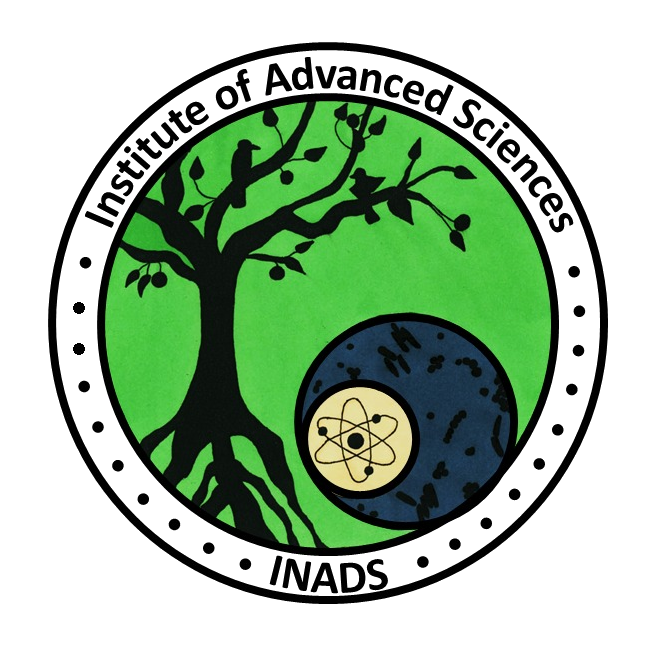 INADS WORLD CAMPUS
INADS WORLD CAMPUS
Norms, Policies, and Regulations Guiding Scholarship and Research
Introduction
Honesty, candor, openness, and integrity are guiding principles that faculty members are expected to adhere to in all their academic activities, including research and scholarship. Faculty members are also the primary source of guidance for responsible research practices among students and employees.
The Institute is committed to promoting a culture of safety among faculty, staff, students, and visitors; providing a safe and healthy place to work, study, live, or visit; and to protecting the natural environment. The Institute is committed to complying with all applicable workplace safety, health and environmental rules and regulations. The Institute academic, research, clinical, student, and operations units will assess the safety and environmental impact of projects/activities and will implement strategies that support successful education and research while respecting and caring for the environment, without compromising the ability of future generations to meet their needs.
Faculty play an essential role in creating a culture of safety in laboratories and other research and educational settings.
Conflicts of Interest and Conflicts of Commitment (Sponsored Research)
The potential for conflicts of interest or commitment can arise in a number of different situations.
In the context of sponsored research, conflicts of interest most frequently occur when there are overlapping financial interests. Faculty members are responsible for disclosing significant financial interests or management positions that may arise from relationships with sponsors or other outside entities; this may also include disclosure of financial and management interests of the faculty member's immediate family. It is the responsibility of involved faculty to disclose any financial interest to the executive committee of the institute and the President’s office. If appropriate, the committee will devise and oversee mechanisms to manage any serious conflicts. Additional requirements may be composed by specific funding agencies.
Consulting/Work Outside the institute
The institute encourages faculty involvement in outside activities, including consulting, if this contributes to the intellectual enrichment of faculty members and their students and serves the institute as a whole. It is important that these relationships, with regard to time spent and fees earned, stay in balance with other faculty obligations of teaching, research and scholarship, and service to the institution and society, and that they don't present a conflict of interest or a conflict of commitment. All full-time faculty members must obtain approval from the appropriate authority, usually the President or the Head of Department, when contemplating outside employment during the academic year.
Direct and Indirect Costs
Direct costs (such as salaries, equipment, supplies, and travel) can be identified and attributed to a specific project. Indirect costs (usually 40% of direct costs for the Institute of Advanced Sciences, such as costs associated with use of buildings and equipment, library and computing expenses, and sponsored project administration) are common to projects, programs, or activities of the institution and cannot be easily attributed to specific projects.
Interdisciplinary Activity
Interdisciplinary and multidisciplinary activity are one of the great strengths of our Institute. The departments/centers of the Institute also promote and facilitate interdisciplinary activities and joins people from across the institution in ways that allow them to experience and take advantage of the Institute as a scholarly community, for example through presentations, discussions, and debate. While departments, as they should, encourage graduate students to focus their scholarly efforts, the Graduate School seeks to remind them that they are part of a much larger intellectual endeavor.
Openness in Research Agreements
Openness in research agreements is having an important value in the Institute's consideration of any secrecy stipulations by a sponsor of research or scholarship. It is an absolute requirement of the Institute will accept no research agreement that restricts its freedom to disclose the agreement's existence, scope, and purpose.
Procurement Integrity in Federal Contracts
Federal law regulates the procurement of federal contracts with a value of more than $100,000. Since the law applies to federal contracts as opposed to federal grants, most faculty proposals for external research sponsorship are not affected. For additional information, please follow the Federal guidelines on this. Involved faculty are responsible to maintain the procurement integrity as per the federal guidelines.
Use of Human or Animal Subjects
The Institute enforces high standards for the appropriate use of human or animal subjects in research. No such use may begin without approval of the appropriate Institute’s oversight committee, IACUC (Institutional Animal Care and Use Committee). Faculty members are responsible for ensuring that their own research with human subjects and that of the students they supervise are reviewed by the relevant committee and that the research is conducted in conformance with approved plans. Respect to participation through appropriate consent and privacy provisions, minimization of risk, a favorable risk/benefit balance, equitable selection of subjects, and protection of vulnerable populations is the major criteria considered by the oversight committee.
Researchers who use animals in their studies are required to maintain regular contact with the IACUC. This IACUC is responsible for the supervision and coordination of the animal care program and for assuring compliance with federal regulations.
Research Misconduct
The Institute complies with federal agencies' policies regarding the investigation of allegations of research misconduct involving activity supported by those agencies. In general, federal agencies may require notification by the institute when the institution becomes aware of the following either during a misconduct inquiry or prior to the decision to initiate an investigation:
The health or safety of the public is at risk, including an immediate need to protect human or animal subjects
The resources from, the reputation of, or the interests of the federal agency are threatened/need protecting
Research activities should be suspended
There is reasonable indication of possible violations of civil or criminal law
Federal action is required to protect the interests of those involved in the research misconduct proceeding
The research community, the scientific community, or public should be informed
The institute will follow Department of Labor and National Science Foundation research misconduct policy.
